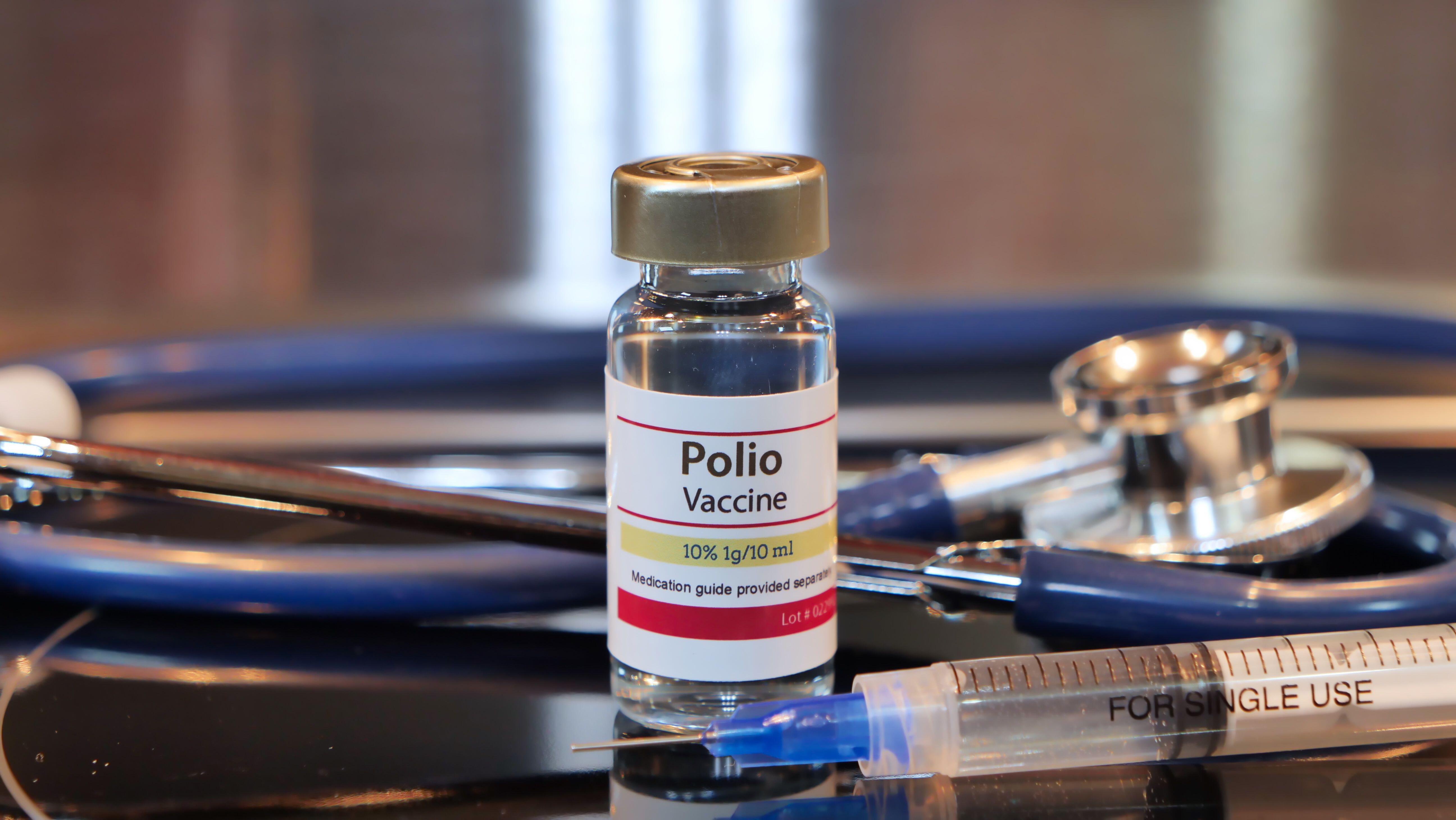How to check if you’ve had your polio vaccine and what to do if you haven’t
Health officials declare national incident and are investigating in London

People are being advised to make sure they and their children are up to date with their polio vaccinations, after the virus was reported to be potentially spreading in the UK for the first time in decades.
Health officials have declared a national incident after the virus was discovered in sewage samples taken from London between February and May 2022, according to the UK Health Security Agency (UKHSA).
The agency said it is “likely” that there has been spread of a vaccine-derived poliovirus type 2 (VDPV2) between “closely-linked” individuals in northeast London, and an “urgent” investigation has been launched to establish whether any wider transmission is occurring in the capital.
The health secretary, Sajid Javid, has said he is “not particularly worried” about the detection of the virus, which can cause paralysis in rare cases among unvaccinated people.
He told BBC Radio’s PM programme that UKHSA “reminded me that as a country we have very high vaccination rates against polio”, adding: “We've been declared polio free since 2003 and we haven't had any cases since then.”
No cases have yet been reported in connection with the suspected outbreak, with the virus – which causes asymptomatic infection for most people – merely detected in wastewater so far.
However, health officials have urged the public to ensure they are fully immunised against the virus, which was declared eradicated in the UK in 2003 as a result of high levels of vaccination, with the last wild case detected in 1984.
The virus detected in sewage by the UKHSA isn’t “wild type” polio, but a version of the virus which comes from the live oral polio vaccine (OPV), which the UK stopped inoculating people with in 2004.
The OPV generates gut immunity and people can shed the vaccine-derived virus in their faeces for several weeks after vaccination, which can then spread in under-vaccinated communities through poor hand hygiene, contaminated water and food, and in rarer instances through coughing and sneezing.
What are health experts advising in response?
“Vaccine-derived poliovirus is rare and the risk to the public overall is extremely low,” said Dr Vanessa Saliba, a consultant epidemiologist at the UKHSA.
“Vaccine-derived poliovirus has the potential to spread, particularly in communities where vaccine uptake is lower. On rare occasions it can cause paralysis in people who are not fully vaccinated so if you or your child are not up to date with your polio vaccinations it’s important you contact your GP to catch up or if unsure check your Red Book.
“Most of the UK population will be protected from vaccination in childhood, but in some communities with low vaccine coverage, individuals may remain at risk.
“We are urgently investigating to better understand the extent of this transmission and the NHS has been asked to swiftly report any suspected cases to the UKHSA, though no cases have been reported or confirmed so far.”
Jane Clegg, chief nurse for the NHS in London said that the majority of Londoners are fully protected against polio and will not need to take any further action.
However, the NHS will begin reaching out to parents of children below the age of five in London who are not up to date with their polio vaccinations to invite them to get protected, Ms Clegg said.
“Meanwhile, parents can also check their child’s vaccination status in their Red Book and people should contact their GP surgery to book a vaccination, should they or their child not be fully up to date,” she added.
How do I know if I am fully vaccinated?
The polio vaccine is given on the NHS when a child is eight, 12 and 16 weeks old as part of the 6-in-1 vaccine. It is given again at three years and four months old as part of the 4-in-1 (DTaP/IPV) pre-school booster, and at 14 as part of the 3-in-1 (Td/IPV) teenage booster.
All of these vaccines need to have been given for a person to be fully vaccinated, though babies who have had two or three doses will have substantial protection.
Latest figures show that by the age of two in the UK, almost 95 per cent of children have had the correct number of doses. However, this drops to just under 90 per cent in London.
When it comes to the pre-school booster, just 71 per cent of children in London have had it by the age of five.
How do I check my vaccination history?
Those who are unsure about which inoculations they have received can check with their GP. The NHS app also allows some users to view their immunisation records.
GP and broadcaster Dr Ellie Cannon advised that “if you are checking your polio vaccinations or your child’s they are rarely called ‘polio’”.
“They will be labelled: DTaP/IPV or dTaP/IPV or 6 in 1 or 5 in 1. Teenage boosters are known as Td/IPV or 3 in 1. If they've had full UK schedule, they are immune,” she tweeted.
Alasdair Munro, a paediatric registrar and clinical research fellow at University Hospital Southampton, said: “If, for any reason, your child is not vaccinated against polio – now would be the absolute BEST time to get it done. Contact your GP today.”
Additional reporting by PA
Join our commenting forum
Join thought-provoking conversations, follow other Independent readers and see their replies
Comments




Bookmark popover
Removed from bookmarks